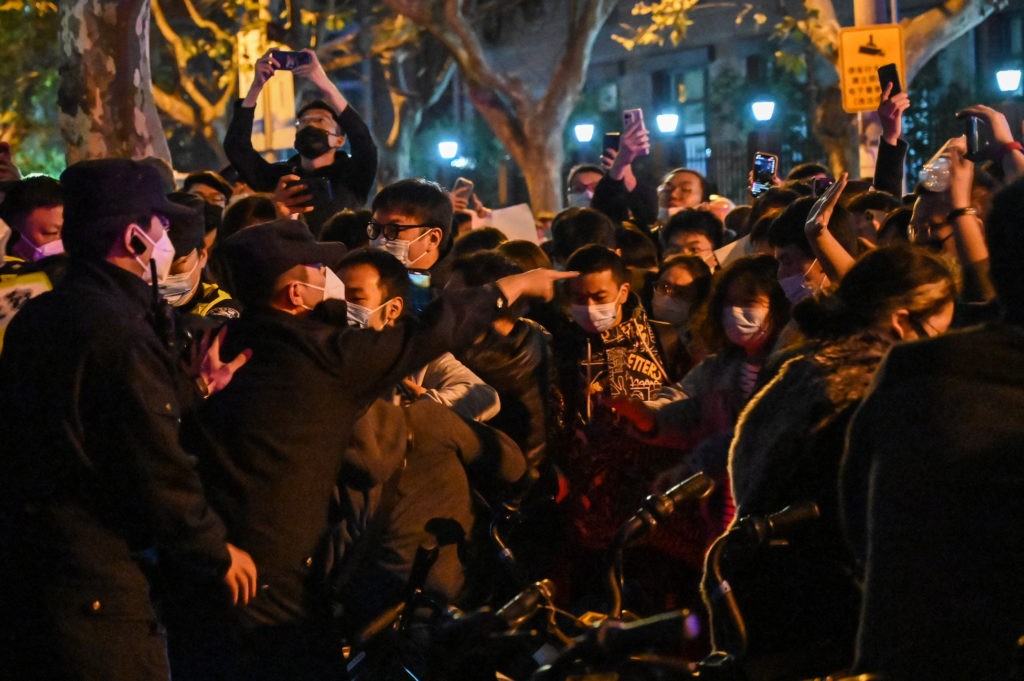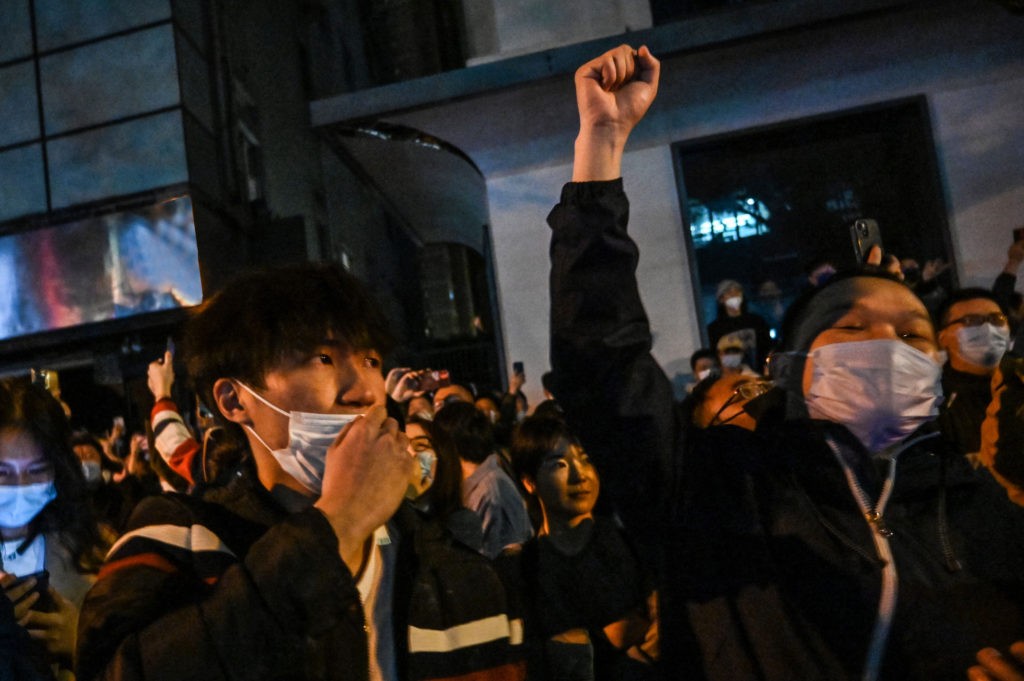The scale of the street protests, especially in Guangdong, Beijing, and Shanghai, show the weariness and desperation caused by the restrictions imposed by the Covid-zero policy. Posters against the government – and direct attacks on Xi Jinping – were seen, but the dominant slogans on social media demand “freedom” and condemn “abuses of authority.” The student movement, most prominently at Peking University, politicizes the tension that the government is focused on diluting
Guangzhou announced Wednesday the end of the sieges of buildings and neighborhoods, and there are doctors applauding in public the end of mass testing, as a “more scientific” measure of epidemic control; in Xinjiang, public transport is back on the road and the productive activity is gradually resuming…
Read more on the subject: China admits that Omicron is less virulent and suggests the end of ‘zero covid’
During the last week, official voices have assumed in the press “errors” in the application of the restrictions, and the National Health Commission has issued instructions prohibiting the multiplication of anti-pandemic measures, setting as a priority the rapid action on individual cases, in the first 24 hours. A “more scientific” method, says Wang Liping, a researcher at the Chinese Center for Disease Prevention and Control.
The political power rejects facing mass protests, and sources connected to the government in Central tell PLATAFORMA that this extrapolation makes no sense: “The government is aware of the corrections that were needed.”

The People’s Daily, in an editorial, sums up the Chinese government’s reaction: “Monitor the implementation of the 20 optimization measures” in the Covid-19 fight plan, and “intensify efforts to meet the basic needs of the population.”
Also read: China censors images of maskless fans during World Cup games
Pictures of the protest demonstrations have since disappeared on social media, as well as videos of young people risking their faces for policy change. Meanwhile, there are reports of arrests and repression against the protests.
A diplomatic source in Beijing told PLATFORM that “on the one hand, it is expected that there will be concessions in terms of pandemic restrictions, and on the other, there will certainly be a strengthening of political control mechanisms.
WITNESS FROM MACAO
The protests, which escalated last weekend, “do not surprise” a young woman from Macau who is studying in Beijing (confined to the university campus). “This has been talked about for a while, since they started closing universities,” she tells PLATAFORMA, describing having witnessed, where she is, several “clashes between students and the police, in addition to the repeated silent protests on the university campus.” Especially “in recent months,” he clarifies.
Also read: COVID-19: four more infection cases confirmed in Macau
What I really didn’t expect, he confesses, was the scale that the protest took on this time: “I thought they would be afraid of the police and wouldn’t risk so much. I’ve never seen anything this big, because now it’s not just the students. Many citizens have voluntarily joined the protests.”
In the various images that during the week ran the world, it should be noted that there were no signs of police violence, nor an aggressive presence of the special intervention forces. The most controversial case was the arrest of a BBC journalist in Beijing.
Hours later, Ed Lawrence was released, having then denounced having been a victim of physical violence at the police station. The explanation given by the authorities, according to which the intention was to remove him from contact with the demonstrators in order to “prevent him from being infected”, earned the British TV station a comment criticizing the police intervention and discrediting the official explanation.
UNCERTAINTY AT THE WEEKEND
The popular reaction to the economic and social pressure, already dubbed the “White Paper Revolution” – because of the blank papers displayed in silent protest – has been described by some Western analysts as a window of contestation of the regime itself.
This thesis is contradicted by most Chinese opinion makers, who refocus the debate on the easing of restrictive measures. Meanwhile, expectations about the atmosphere in the streets and on social networks during this coming weekend are rising, as a way to measure the levels of tension versus the ability to bring the tension down. Meanwhile, the passing of Jiang Zemin may produce opposite results.
Also read: China arrests BBC journalist covering Covid protests
“On the one hand, national mourning may help to calm the atmosphere; on the other hand, the tribute to the former president, seen as an opponent of Xi Jinping, may be used for new forms of protest,” an academic in Macau explains to PLATAFORMA.
POLITICIZED STUDENT PROTEST IN BEIJING
At Beijing University, one of the most popular universities for the training of top Communist Party officials, a group of about 40 students published a long document against the Covid-19 policy. The letter explains that they do not intend to question the legitimacy of the CP, nor that of its leadership. However, five demands that summarize harsh criticism of current political practice.

Meanwhile, Tsinghua University, where Xi Jinping graduated, also issued a statement, although in a less critical tone. And on social networks there are lists – unconfirmed – of more than 50 universities where protests are said to have taken place.
Read also: China’s ‘iPhone city’ under Covid lockdown after violent clashes
To prevent abuse of power by the authorities, all regional quarantine blockades should be stopped to ensure that all people, in communities, villages, units and schools, can enter and leave freely;
Abolish technological means that monitor and control citizens’ movements, such as electronic codes and cell phone detection apps like “jiankang bao.”
Stop thinking that the spread of the epidemic is the responsibility of certain individuals or institutions. Devote resources to long-term strategies, such as vaccines, drugs, and hospital construction;
Implement voluntary nucleic acid testing and voluntary quarantine for undiagnosed and asymptomatic individuals;
Relax restrictions on free speech and allow suggestions and criticism about specific problems in different regions;
Disclose the actual data about the pandemic; including the number of people infected, the death rate, and the long-term sequelae of the disease, to control panic during the transition process.
Most of the protest messages are posted incognito, although during the week it was even possible to find videos of young people showing their faces at the protest. Many of them have since been taken down; reports of arrests and increased repression by the authorities against the protests are now multiplying.



